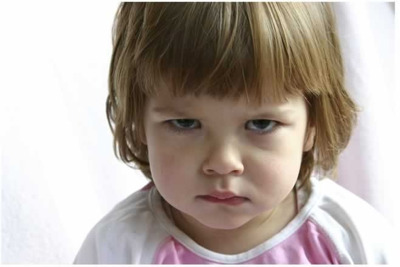
About anger
Anger is a very common emotion that everyone experiences at times. If a child or young person feels angry this is not a problem in itself. However, it is important that children and young people learn to express their anger constructively.
If anger is ignored it can build up inside and may lead to them expressing it in disruptive behaviour or turning their frustration on themselves and those around them. Expressions of anger can range from mild irritation to full-blown rages, verbal outbursts and physical violence.
Things to think about
Feeling angry at times is as natural as feeling happy or sad. However we often see anger as a bad thing and we may even be scared of it, because of its occasional explosive nature.
Children and young people experience anger for the same reasons that adults do, for example, when they are stressed, frustrated, or feel that something is unfair. They may have been annoyed by something that just happened and are reacting to it immediately. They could also be feeling angry about things that happened in the past, and may be carrying a lot of bottled up anger around with them.
In trying to understand why a child or young person may be feeling angry, it is helpful to think about specific situations that may be causing them stress, for example:
- Are they struggling at school?
- Are they being bullied?
- Are there any issues at home?
- Has there been significant change, loss or bereavement?
- Are they unable to express themselves verbally? Anger can occur in children or young people who have difficulty in expressing their views or feelings in words.
Think about your response
Anger is something that we have all experienced at some time in our lives. Everyone knows what it feels like to be angry or to experience someone else’s anger, and your experiences will affect your response to a child or young person who is angry. It is important to be aware of your own feelings and experiences so that you can respond helpfully to the child or young person.
What you can do
When they are angry
- Lead by example by remaining calm.
- When calming them down, be assertive but do not shout or lose your own temper. Instead, show them that you can handle their angry feelings without becoming aggressive yourself.
- Reassure them that you understand how they are feeling.
- Explain the situation to them. A child or young person may be feeling angry because they are feeling a lack of control, ignored or disrespected.
- Offer them choices to try to defuse the situation. This can be as simple as, "We'll have to complete this task but how do you think we should approach it?" or "Do you want to get some air and come back to this in a few minutes?". This makes them feel more in control and increases their sense of fairness and confidence, without allowing them to have their own way.
- Sometimes using humour can help distract and calm the child or young person, but be careful not to embarrass them or make them feel that you are not taking them seriously.
- It can be more difficult for them to back down if they fear losing the respect of friends. If they are not calming down, encourage them to go somewhere private or ask others to give you space so you can talk to the young person on their own.
- If the child or young person is very angry and has lost their temper or is being aggressive, it may be necessary to remove them from the situation. This should always be done with the child or young person's safety in mind, as well as your own.
This video from Family Lives gives tips to help with anger and aggressive behaviour:



